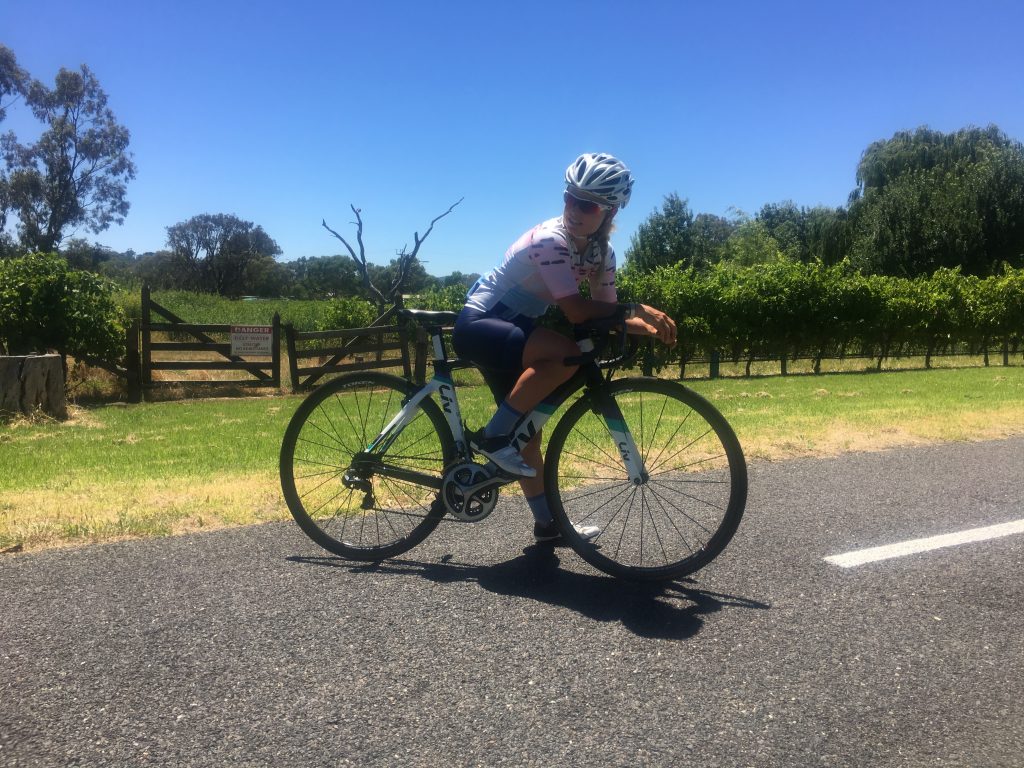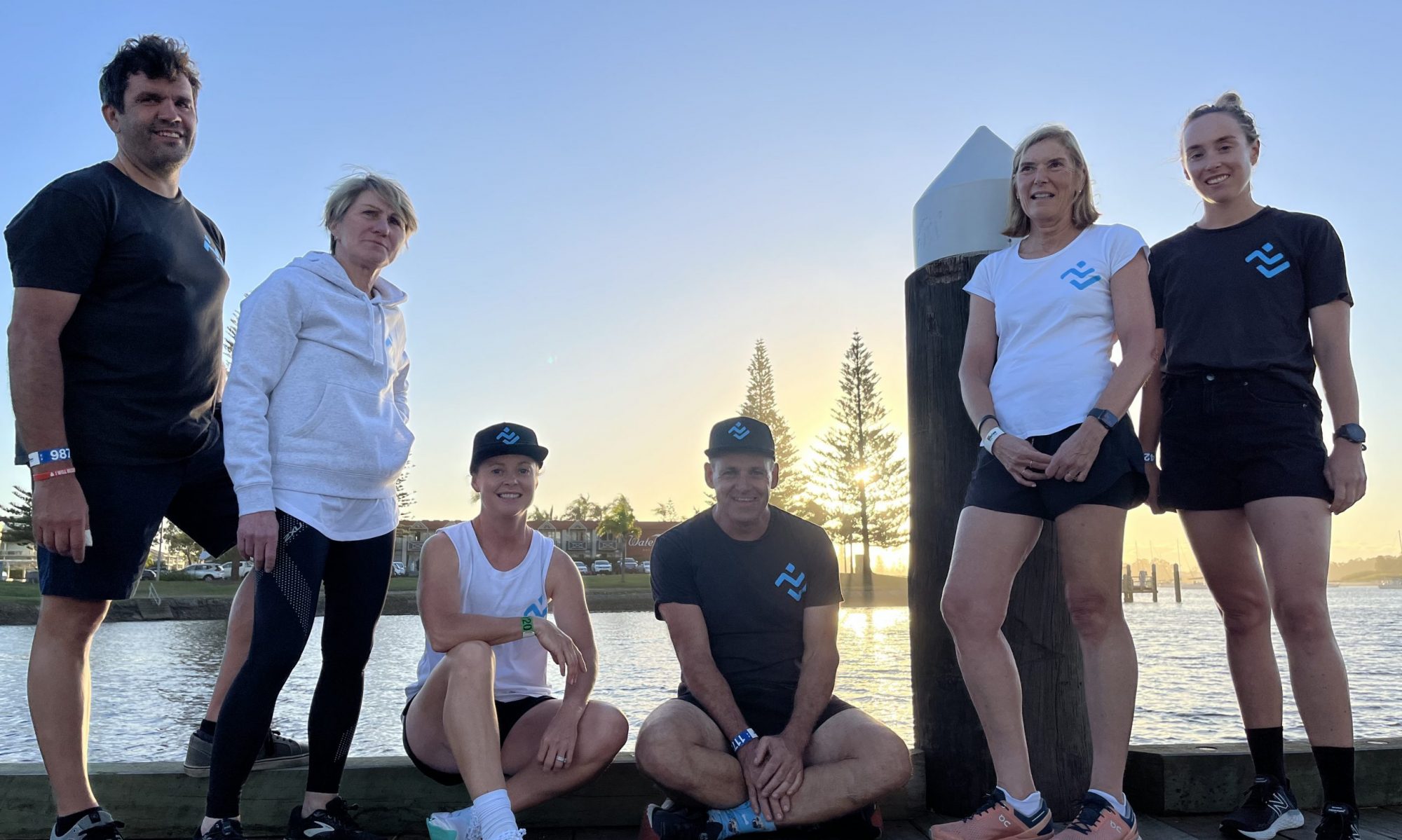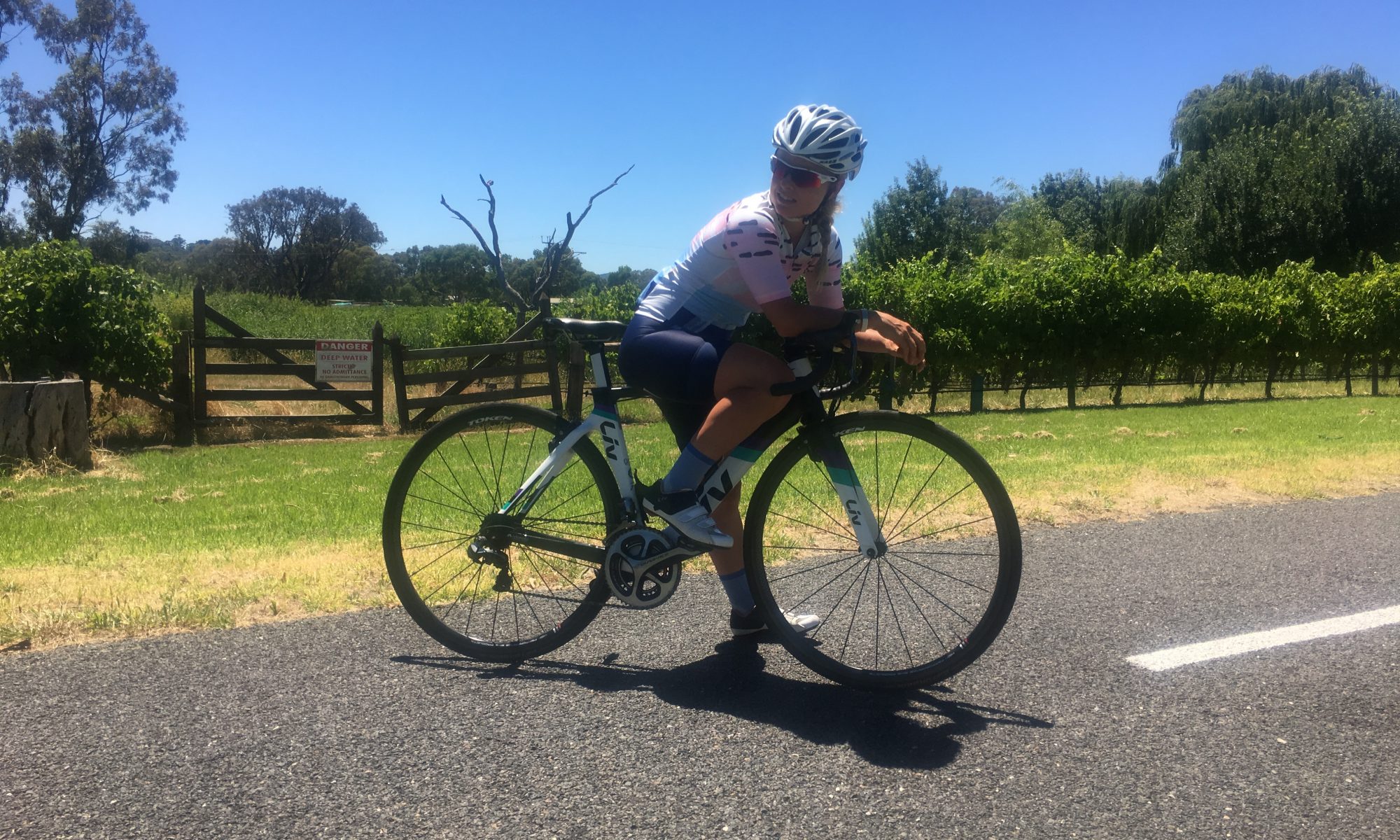You trained for months; you dedicated your ‘life’ to this race. You sacrificed birthday parties, nights out and sleep ins. Weeks went by and all you can remember doing is training, eating and sleeping – and trying to hold down your job/family in between! You trained SO hard for this race. You had done everything possible for this to be the most amazing race ever. And you did it! You are an Ironman!! Your friends and family applause you and praise you on your efforts. They think you are super human for achieving such a feat – something they would never think possible for themselves.
But they have now moved on, and you are now a little lost and you have had some time to reflect. Underneath the thrill of finishing, there’s a slight niggle of disappointment. You didn’t achieve the race time you had trained so hard for. Yes you are proud that you got to the start line – a feat that so many never even get the chance to do. But there’s a part of you that feels that lingering disappointment. All your commitment, your effort, your sacrifices and still you didn’t achieve your race time and your race goal. And you just can’t get past it.
Most triathlete’s work in numbers, it’s just what we do. We log distances, paces, times, heart rate and effort. We compare PB’s, we analyse results and we are critical. We put so much pressure on ourselves to achieve, that even when we do, this is often still not enough. “I could have trained a little more, I could have pushed a little harder, I could have eaten a little better”. Triathletes are perfectionist and we prepare so hard for our race. We pursue our goals so vigorously and hold onto them so tightly that when we don’t achieve them we feel a sense of disappointment. That all our hard work was for nothing, as we didn’t get that goal, or target, or position. And if we aren’t careful, that feeling of disappointment can linger.
Scenario: An athlete has a goal of sub 10hours, their previous best is 10:45. On race day they achieved 10:00:07. But it isn’t enough. Those 7 seconds eats away at them. “What if I hadn’t stopped to tie my shoe lace, what if I didn’t slow down to high five my partner, what if….”
WHAT IF they actually appreciated what they had just accomplished? What if they looked for the positives first instead of the negatives? What if things could have actually gone the other way? What if what they achieved was the best they could do on that day? What if we didn’t have to search for excuses? What if???
But all this athlete can think about is those 7 seconds. 7 seconds that they feel robbed them of their dream. 7 seconds that if they had their time again they would do differently. They allowed those 7 seconds to take away from their achievement – which if they look from a positive stand point – is a 45min Personal Best (PB)!
We’ve all been there. Being over critical, over thinking, over analysing and simply being hard on ourselves. Don’t get me wrong, I get disappointed too when a race doesn’t go to plan, and I feel for athletes when this happens to them. But the difference is, I not only have a race plan, but I have a post-race plan. A plan that can help me evaluate my race and my athletes races – whether good or bad, so we can learn from each race and become stronger and more resilient athletes as a result. And more importantly, allows me to see the positives in every race, despite the race outcome.

6 Tips for BEATING post-race disappointment
1. Don’t be so hard on yourself.
What does it mean if you didn’t reach your goal? How does it make you feel? Do you consider yourself a failure for not achieving your goal? Do you feel like you have let others down?
Most athletes would be judgmental and hard on themselves because of their unrelenting standards. They feel like they let their Coach down, their friends down, themselves down. They set their standards so high that they feel like a failure if they aren’t achieved.
You need goals, as they drive you, but think about WHY you have the goal, not just the goal itself. If you know your WHY, you won’t be so judgmental if you do not reach the goal. You won’t be so disappointed if your time wasn’t want you had planned, and you won’t feel guilty for letting others down. You will simply find another way to continue to work to achieve it.
So pursue your goals vigorously, but hold onto them lightly – meaning chase your goals, but hold onto them lightly enough that if you don’t reach them this time, they won’t drag you down.
2. Find the positives in the negatives
Ok, so your race didn’t go to plan. You didn’t have the race you wanted and you didn’t achieve the time you had dreamed of. But amongst all the negatives, search for the positives. What worked well? What would you replicate again? What made you feel good? What are you proud of? Write them down, as you will want to use these again! And it’s a great way to remind yourself that even if your overall race didn’t go to plan, there were parts of your race that did.
3. Learn from each race.
‘You cannot learn how to cook if someone always cooks for you…’ Same principle applies to athletes. So use each race as a learning experience. Whether you achieved your goal or not, as long as you are learning from each experience, you are on the track to success – a term I like to call ‘failing to succeed’. So don’t be afraid to fail, but also don’t accept it. And accepting means learning. Did you go out too hard? Did you stick to your nutrition/hydration plan? Learn from each race and you will become a better athlete for it.
4. Don’t dwell on the what if’s or could have’s.
Simply put. Don’t dwell on the past. If you are dwelling on the past, your concentration is heading in the wrong direction. Yes it’s easy to focus on what could have been, and using statements such as ‘I lost the race here’. But reality is, you didn’t have it in the first place, so you didn’t lose anything. So don’t dwell on it, it serves no purpose at all apart from detracting you from forward progression. Use that energy and focus to move forward.
5. Look back to how far you have come.
The longer we are in the sport, the harder it can become to remember where we started and why. What drove us to this sport in the first place? What continues to drive us today? So take the time to reflect on why it is you ‘do’ triathlon? What drives you? What motivates you? What inspires you? You will often find it’s not the race result that drives you, it’s something much deeper, and when you can determine your WHY you may just realise that you aren’t so disappointed after all.
6. Re-evaluate and Refocus
Use your time post-race to re-evaluate and refocus. If your race didn’t go to plan, that’s ok. Simply re-evaluate and refocus to determine your plan for your next goal/race. Whether it’s to achieve a PB, podium, qualify for the world championship, or simply to love racing and enjoy the sport. Post-race is the perfect time to re-evaluate, check in and understand your goals and motivations. And remember, people change and goals change. The goals you once had may not be the goals you have for your next race, or your next season. So don’t feel like you have to keep the same goal.
And finally, is it possible to avoid disappointment in the first place? Or would that mean setting your goals so low that you always achieve them? And therefore not really reaching your full potential?
I ask athletes to ensure they are setting realistic goals and expectations of themselves. Yes goals should scare you a little, but they have to be realistic and within achievable time frames. So often Coaches see athletes come into the sport and want to achieve huge goals in just 12-18months. They compare themselves to others who have been in the sport for years, without knowing their history, their journey, their goals or their motivations. So compare yourself to yourself, and not others. Set goals that are for you, not about anyone else. You don’t have to aim to be the best in your age group, or qualify for Kona, or PB every single race. Setting realistic goals means finding goals that drive you, motivate you, but most importantly excite you! Then be prepared to put in the hard work that is required to achieve those goals. And be ready with the points above if, for whatever reason, you don’t achieve them first time round.
6 Tips for AVOIDING post-race disappointment
1. Set realistic goals (SMART goals)
2. Don’t compare yourself to others
3. Don’t compare race times to other courses/events
4. Re-evaluate your goals/times based on conditions
5. Focus on the process, not the result
6. ENJOY what you do!
Racing itself is amazing. The feelings and emotions running down the finishing shoot and crossing the line cannot be replaced or replicated in any way. It is truly an amazing experience. So don’t let your disappointment over shadow that experience. Your triathlon journey is not simply about crossing the finishing line, earning that medal or achieving a PB. Each race should allow you to become a stronger athlete and person, more resilient and resourceful. You will appreciate and respect some of the simple things in life because you had to sacrifice some of these to reach your goal.
So next time you feel disappointment after a race, take the time to find the positives in the negatives, learn from the race, don’t dwell on what’s if’s, look back at how far you have come and re-evaluate and refocus.
Written by Coach Sarah, as previously published in the Australian Triathlete Magazine


